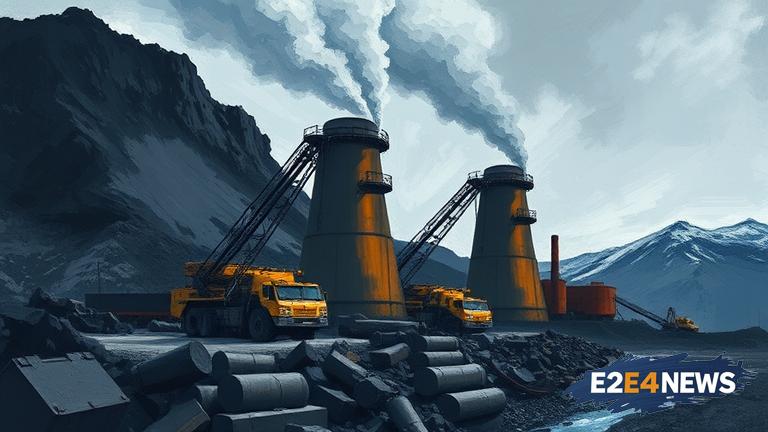The coal mining industry has been hit hard by falling demand, with many companies struggling to stay afloat. As the world shifts towards cleaner and more sustainable energy sources, the demand for coal has decreased significantly. In response, coal miners are being forced to adapt and explore new markets and opportunities. One potential area of growth is the production of metallurgical coal, which is used in the production of steel. However, this market is also highly competitive, and companies will need to be strategic in their approach. Another option is to diversify into other areas, such as renewable energy or mining other commodities. Some companies are also looking to export coal to countries with growing energy demands, such as India and Southeast Asia. However, this approach is not without its challenges, including transportation costs and logistical hurdles. Despite these challenges, many coal miners remain optimistic about the future of the industry. They point to the fact that coal is still a major source of energy globally, and that it will likely continue to play a significant role in the energy mix for years to come. Additionally, advancements in technology are making coal mining more efficient and environmentally friendly, which could help to improve the industry’s reputation and increase demand. However, the shift towards cleaner energy sources is unlikely to be reversed, and coal miners will need to be proactive in their efforts to adapt and evolve. The Indonesian government has also implemented policies to support the coal mining industry, including providing incentives for companies to invest in renewable energy and other diversified activities. Furthermore, the government has set a target to increase the production of metallurgical coal, which is expected to drive growth in the industry. The coal mining industry is also expected to benefit from the development of new infrastructure, including ports and transportation networks. This will help to reduce costs and increase efficiency, making Indonesian coal more competitive in the global market. In addition, the industry is expected to create new job opportunities, both directly and indirectly, which will have a positive impact on the local economy. The coal mining industry is a significant contributor to the Indonesian economy, and the government is committed to supporting its growth and development. The industry is also working to improve its environmental and social performance, with many companies implementing sustainable mining practices and community development programs. Overall, while the coal mining industry is facing significant challenges, there are also opportunities for growth and development. With the right strategies and support, the industry can continue to thrive and play a major role in the global energy mix. The future of the coal mining industry will depend on its ability to adapt to changing market conditions and to innovate and diversify. As the industry continues to evolve, it is likely that we will see new technologies and business models emerge, which will help to drive growth and sustainability. In conclusion, the coal mining industry is at a crossroads, with falling demand and increasing competition posing significant challenges. However, with the right approach and support, the industry can continue to grow and thrive, and play a major role in the global energy mix.





